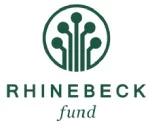

Targeted Investments
Rhinebeck Fund provides the option to invest in a pooled investment structure (see Pooled Investments), or directly in life insurance policies one at a time. The greatest advantage to a direct investment is that Investors have greater control in the selection of policies. Investors take a percentage share in each such policy. The Fund encourages smaller shares in multiple policies and not larger shares in but one or a few policies.
The Manager offers shares in a policy to Investors via a detailed spreadsheet analysis of the policy under varied outcomes. Such analysis will define commitment levels by share percentage (e.g. 5%, 10%, 20%). Investors commit to their pro rata funding of the policy, including up front closing costs and quarterly premiums. While the analysis is generally based upon multiple predictions of life expectancy, the Investor commits to the pro rata payment of premiums until the policy triggers (that is until the death of the Insured, or sale of the policy).
IS THERE A MINIMUM INVESTMENT?
While there is no minimum level of investment required, Investors must commit to at least a 5% share in a policy. The level of commitment will depend upon the size (face amount) of the policy, the purchase price, future premiums, and other factors.
WHEN AND HOW DO INVESTORS GET PAID?
Investors are paid immediately upon receipt of revenues in relation to the “triggering” of a policy. A policy is triggered when an Insured dies and a death benefit is collected; or when the policy is sold. Policies are purchased with the view of holding the policy, and not selling it. However, the Policy may be sold if the Manager believes this to be in the best interest of this specific investment (and not of the Rhinebeck Fund as a whole.)
HOW IS THE MANAGER PAID?
Once a policy triggers, the revenue generated is split between the Investors, on the one hand, and the Manager (in the form of a Success Fee) on the other. Such allocation between Investors and Manager is computed on the basis of the Effective Yield (or the internal rate of return – IRR%) generated by the ownership and triggering of that particular policy. Simply put, Investors in the aggregate are paid out the first 10% of IRR% and to the extent that the policy’s IRR exceeds 10%, the Manager and the Investors split revenues according to formula. Please refer to the Rhinebeck Fund Operating Agreement for specific details.
ARE THERE ANY OTHER WAYS THE MANAGER IS PAID?
With respect to direct investments, the only way the Manager can be paid is by the above-mentioned Success Fee (where the IRR% > 10%.) No salaries are paid to the Manager, or to anyone. Nor is there any reimbursement for “overhead” expenses. Assuming at least a break-even result, all expenses directly connected with the purchase and maintenance of a policy (purchase price, premiums, etc.) are capitalized and “paid back” to the Investors when the policy triggers and the revenue is collected.

